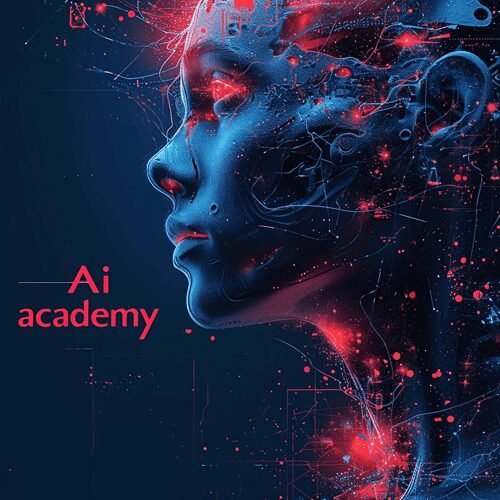AI tools for students are transforming education by making learning faster, smarter, and more efficient. From homework assistance and research support to plagiarism detection, writing improvement, and study organization, AI-powered tools now play a vital role in academic success. This guide highlights the best AI tools for students in 2026, helping learners boost productivity, automate routine tasks, and achieve better academic outcomes with ease.
Check Page Contents
ToggleBest AI tools for students in 2026 to study smarter, save time, and score better.
In the modern era of education, Artificial Intelligence (AI) has emerged as a game-changer. The advent of AI tools has revolutionized the way over 100 million students worldwide learn, making education more interactive, engaging, and efficient. From assisting with homework and assignments to detecting plagiarism, proofreading essays, staying organized, and more – AI tools have become an integral part of a student’s academic journey.
In this definitive guide, we will explore the “Best AI tools for students” and how these tools can enhance your productivity, automate tedious tasks, and help you reach your academic goals.
Now, let’s get started!

Essential AI Tools for Student Success
AI tools for students come in various forms, each designed to cater to specific academic needs. These tools can be broadly categorized into homework helpers, plagiarism checkers, thesis writers, research assistants, writing editors, flashcard apps, citation generators, and more. Let’s explore some of the most popular categories:
1. Superior Homework Help with AI Homework Generators
One of the most beneficial categories of AI tools for students is the AI homework generator. These tools use advanced natural language processing algorithms to solve a wide range of academic problems. They can generate answers for math problems, provide explanations for scientific concepts, summarize long passages, and even help with humanities assignments.
The key benefit of AI homework generators is that they not only provide answers but also show the working process, helping students deeply understand the underlying concepts. This sets them apart from traditional cheating methods and makes them a learning enhancer.
Some top examples of AI homework helper tools:
- WolframAlpha: Generates step-by-step solutions for mathematics, physics, chemistry, and more
- Photomath: Scan math problems through a phone camera and get explanations
- Socratic: Explains solutions to homework questions across various subjects
2. Plagiarism Checking Tools for Academic Integrity
Maintaining academic integrity is crucial for students in this digital age. AI plagiarism checker tools compare student writing submissions against extensive global databases to catch copied content.
Key features offered by plagiarism checkers:
- Identify plagiarized sections and properly cite sources
- Generate similarity reports to showcase originality
- Integrate with Google Drive and other productivity software for ease of use
- Ensure academic papers adhere to university guidelines before submission
| Tool | Free Check Words Limit | Paid Plans |
|---|---|---|
| Grammarly | 150 words | Premium: Unlimited |
| Unicheck | 1000 words | Pricing for academics |
| Copyleaks | 500 words | From $10 per month |
In addition to checking for plagiarism, some tools like Unicheck Plagiarism Detection also ensure student writing is indeed original through their fingerprinting technology and other advanced algorithms. This further helps to maintain complete academic integrity.

3. AI-Powered Thesis Writers For Excellent Papers
For graduate students and academics, producing an excellent thesis or dissertation is essential. However, long-form academic writing with proper topic research can be extremely time-consuming.
This is where AI thesis writer tools prove invaluable through:
- Structuring logically coherent outlines
- Providing relevant recommendations to strengthen arguments
- Generating drafts and samples to kickstart writing
- Rewriting and enhancing text to improve academic tone and style
- Formatting papers as per university guidelines
Some reputable AI thesis writer tools:
- Articoolo – Free thesis outline generator
- ShortlyAI – Paid but offers student discounts
- Jasper – 7-day free trial for paid plans
- Gemini AI – Google Tool
4. Premium Research Assistants For Effortless Discovery
Conducting extensive literature reviews and discovering high-quality sources is integral to academic success. AI research assistants automate this tedious process through:
- Analyzing paper databases like JSTOR to uncover relevant studies
- Generating literature review frameworks aligned to paper themes
- Importing perfectly formatted citations into reference managers
For scholars looking to accelerate research, some recommended tools include:
- SciWheel – Visualize connections across academic studies
- Iris.ai – Discover new sources based on input research
- Citethisforme – Automate citations and references
5. Eliminate Writing Errors with AI Proofreading Tools
With essay deadlines looming, students rarely have time to proofread thoroughly. AI writing assistant tools fill this gap by acting like an extra pair of eyes using algorithms that check for:
- Grammar and spelling mistakes
- Stylistic errors
- Improper punctuation
- Misused words
- Formatting inconsistencies

This allows students to submit flawless assignments. Some featured proofreading tools are:
| Tool | Key Features | Free Version |
|---|---|---|
| Grammarly | Adjusts tone for different audiences | ✅ |
| Hemingway Editor | Makes writing bold and clear | ✅ |
| Ginger Software | Rephrases sentences to enhance readability | Limited |
Free vs Paid AI Tools: Factors To Consider
With both free and paid AI tools for students available, how do you choose what works best for your needs? Here are some key deciding factors:
Budget: Paid tools offer greater scope but can be expensive. Free tools have limitations yet fulfill basic requirements. Assess your budget and needs.
Features: Paid tools boast advanced functionality from project collaboration to 24/7 live support. Compare features across free and paid tiers.
Accuracy: Paid tools are often more accurate, especially for advanced tasks. However, free tools work remarkably well for basic assignments.
User Convenience: Ease of use, intuitive interfaces, and mobile apps give paid tools an edge regarding convenience.
By weighing these factors, students can decide on the ideal toolkit for boosting their productivity.
Customizing AI Tools For Personalized Learning
One massive advantage of AI writing tools is their ability to adapt to varying student needs and learning styles:
Auditory Learners
Tools like NaturalReaders include advanced text-to-speech engines that allow content to be listened to. Rewordify simplifies complex text for easier understanding.
Visual Learners
AI tools empower visual learning through graphical representations. Bibliogram, for instance, creates book summary pictograms, Otter. ai generates transcripts from audio lectures alongside related imagery.
Such personalization allows students to play to their unique strengths.
Beyond Academics: AI Companions
Increasingly students are also using AI chatbots as emotional support companions during stressful semesters:
- Monitor mental wellbeing
- Set progress reminders
- Provide inspirational quotes
With proper personalization, AI makes education welcoming for all learning styles.
Step-By-Step Guide For Using Top AI Tools
While AI writing assistants are designed for ease of use, students still need a roadmap to employ them effectively:
Step 1: Understand Academic Needs
- What are my pain points? Complex research, writer’s block, formatting issues?
- Where do I need the most help? Literature reviews, plagiarism checks, citations?
Defining needs sets expectations.
Step 2: Evaluate Different AI Tools
Next, browse various tools – both free and paid. See how they compare regarding features, accuracy, and subject expertise.
Shortlist the ones aligning closest to your requirements.
Step 3: Sign Up and Learn The Interface
For selected tools, sign up. Spend time understanding their dashboard, available features, and knowledge bases.
This familiarity will streamline usage.
Step 4: Start Small With Simple Tasks
Don’t dive directly into large assignments. Build confidence gradually.
If using a summarization tool – summarize a paragraph first before an entire paper.
Once comfortable, scale up task complexity.
Step 5: Provide Clear Inputs and Guidelines
Provide clear instructions to AI tools – formatting styles, tone preferences, and subject areas.
The more precise your inputs, the better output quality.
Step 6: Double Check Outputs Before Submission
AI capabilities are impressive but quality assurance remains vital.
Cross-verify automated thesis drafts, and plagiarism reports before relying completely.
By taking this measured, step-by-step approach students can harness AI’s potential while having a foolproof process.

Key Tips For Choosing The Right AI Writing Assistant
With so many AI tools flooding the market, students need guidance on selection criteria. We recommend 4 decisive checkpoints:
1. Ensure The Tool Matches Course Needs
An AI tool proficient in computer science papers may falter in literature reviews. Carefully evaluate subject matter strengths.
2. Check Whether Its Outputs Adhere To University Guidelines
AI tools must conform to institute paper formats and reference styles. Confirm if customization options are available beforehand.
3. Read Customer Reviews Thoroughly
Existing user reviews on App/Play stores reveal pain points. Check ratings across parameters like usability, accuracy, and value for money.
4. Sign Up For Free Trials Before Purchase
Most paid tools offer free trials or demo credits. Avail these to gauge output quality firsthand before subscribing.
Making prudent tool choices is pivotal to maximizing the academic assistance students obtain.
The Future of AI In Education
While AI writing assistants cover considerable ground currently, rapid evolution in machine learning signals even more advanced applications soon. Possible innovations include:
Hyper-Personalized Study Plans
AI algorithms that tune into individual skill levels, and knowledge gaps and craft adaptive learning roadmaps for students.
Immersive AR/VR Content
Textbooks, lectures, and experiments are experienced virtually using augmented and virtual reality for deeper engagement.
Automated Feedback Loops
PI tools analyze assignment drafts, check conceptual understanding, and provide detailed improvement suggestions tailored to every student.
The scope of how Artificial Intelligence can elevate learning outcomes continues to grow exponentially. The present offers a glimpse into this exciting future.
So students worldwide – welcome to an enhanced era of education with AI!

FAQ’s
Is AI good for students?
Indeed, AI offers numerous advantages to students. It can tailor learning experiences, aid in managing time, assist in conducting research, act as a study companion, facilitate learning languages, enhance technical abilities, guide career decisions, improve writing skills, simplify data interpretation, and even provide virtual lab experiences.
How to use AI for studying?
AI can be employed in a variety of ways to augment studying. It can offer personalized learning experiences, immediate feedback, enhancements in productivity, interactive learning, and insights driven by data. AI tools can assist with homework by providing explanations, answering queries, suggesting relevant resources, and offering solutions step-by-step.
Which AI is best for doing assignments?
There are several AI tools that can assist with assignments. For instance, Taskade’s AI Homework Assignment Generator can help streamline studies and enhance productivity. Other notable AI tools for assignments include AssignmentAI, EssayBot, and Grammarly.
Does Google offer AI for free?
Google provides some AI services at no cost. For instance, Google’s Gemini, an AI language model, is available for free. However, some advanced features or services may require a subscription.
Which is the best AI tool?
The “superior” AI tool can vary depending on the specific needs and use cases. Some highly-rated AI tools include Salesforce Einstein, Tensorflow, Cortana, Google Assistant, and Microsoft Azure. ClickUp is also recognized as a top AI tool for writing and content creation.
Which app has the best AI?
There are many applications with excellent AI capabilities. Some of the top-rated AI applications include Lensa AI for image manipulation, WOMBO Dream for AI-generated art, and Perplexity AI for chat.
Which is Google’s best AI?
Google’s most capable AI model is called Gemini. It is a large language model optimized for different sizes: Ultra, Pro, and Nano. Gemini can deal with various forms of input and output, including text, code, audio, images, and videos.
Conclusion: AI Supercharging Academic Journey
This blog guide comprehensively covered the best AI tools for students along with actionable tips for maximizing their potential. Right from AI homework solvers to plagiarism checkers, and research assistants to thesis writers – AI is empowering students worldwide with an array of futuristic solutions.
These tools not only automate tedious tasks but also provide personalized assistance that accelerates subject mastery. By streamlining studies, AI enables students to focus energy on creative pursuits beyond academics as well.
The remarkable pace of AI innovation also promises even smarter functionalities on the horizon. Truly, for modern students, AI unlocks a golden age that steadily builds towards a future fueled by knowledge.
So why wait? Upgrade your academic journey today with AI and unlock endless possibilities for success!

I’m Azahar Hussain, founder of Dewbytes and a digital marketing professional based in Guwahati, Assam. With an MCA (Masters in Computer Application) degree and over 12 years of hands-on experience in IT, networking, web development, and SEO, I’ve spent more than a decade helping businesses across India and internationally build stronger online presence through practical, results-driven strategies.
My work centers around understanding what actually moves the needle for businesses—whether that’s improving Google rankings, developing high-performing websites, or creating sustainable lead generation systems. I don’t believe in shortcuts or temporary fixes. Instead, I focus on data-backed approaches that deliver consistent, long-term growth.
At Dewbytes, I work with clients ranging from small local businesses to established brands across different industries and geographies. As both a WordPress developer and SEO specialist, I bring a unique advantage: I understand how to build websites that not only look good but are technically optimized for search engines from the ground up. My services include custom website development, WordPress solutions, SEO strategies, website optimization, content planning, and targeted digital campaigns.
My approach is simple: listen to what the business needs, study the audience behavior, and build campaigns that align with real business goals. Whether I’m developing a new website or optimizing an existing one, I ensure every technical element supports better visibility and user experience.
While I’m based in Guwahati and have extensive experience working with businesses across the North-Eastern states, my expertise extends to serving clients throughout India and beyond. I understand both regional market dynamics and global digital trends, which helps me create strategies that work in diverse contexts.
My core expertise includes WordPress development, website design and optimization, search engine optimization, local and international SEO, digital brand development, and results-driven advertising campaigns.
Need help with your digital strategy?
If you’re looking for guidance on website development, SEO, or building a stronger digital presence, I’m available for consultations and project-based support. Let’s discuss how we can grow your business online.






5 thoughts on “Best AI Tools for Students in 2026 – Top Picks for Academic Success.”
Your point of view caught my eye and was very interesting. Thanks. I have a question for you.
Can you be more specific about the content of your article? After reading it, I still have some doubts. Hope you can help me.
Can you be more specific about the content of your article? After reading it, I still have some doubts. Hope you can help me.
Much appreciated! This cleared up a lot of confusion.
Thank you, we are grateful being able to clear you confusion.